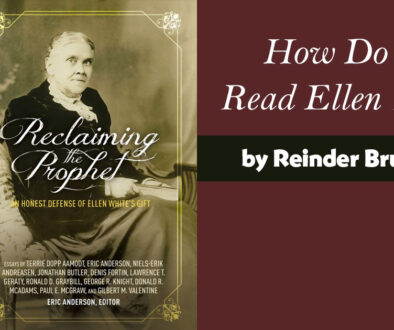Should We Always Take the Bible Literally?
by David W. T. Brattston, January 19, 2016: In Matthew 18:8-9, Christ commands: “If your hand or foot causes you to sin, cut it off and cast it from you. It is better for you to enter into life lame or maimed, rather than having two hands or two feet, to be cast into the everlasting fire. And if your eye causes you to sin, pluck it out and cast it from you. It is better for you to enter into life with one eye, rather than having two eyes, to be cast into hell fire.” How can anyone obey these injunctions literally, especially in the days before anesthetics and antiseptics, when they would result in death, by either blood loss or infection?
Solutions to the stark harshness of a literal application were provided by the church father Origen, who was the foremost Christian Bible scholar and teacher of the first half of the third century AD. What’s missing from writings in the second century indicates that he was correct.
Origen cited Matthew 18:8-9 as a prime example of Biblical injunctions that are impossible or unreasonable. He taught that the Holy Spirit placed such difficulties in the Scriptures in order to teach readers and interpreters not to confine themselves to the plain, literal wording, but to examine the passage more closely, to unveil the deeper meaning (On First Principles 4.1.18).
Origen taught that the underlying message the Holy Spirit intended readers to draw from the text was that the parts of the body represent members of a Christian’s family or circle of friends. “It is possible to apply these words to our nearest kinsfolk, being considered to be our members of our bodies, because of the close relationship; whether by birth, or from habitual friendship. We must not spare them if they are injuring our soul. Let us cut off from ourselves as a hand or a foot or an eye, a father or mother who wishes us to do that which is contrary to piety, and a son or daughter who would have us revolt from the church of Christ and the love of Him. Even if the wife of our bosom, or a friend who is kindred in soul, become stumbling-blocks to us, let us not spare them, but let us cut them out from ourselves, and cast them outside of our soul, as not being truly our kindred but enemies of our salvation; for “whosoever hates not his father, and mother,” etc. (Luke 14:26). We must hate them as enemies and assailants, that we may be able to win Christ, and be worthy of the Son of God. A lame person, so to speak, is saved when he has lost a foot—say a brother—and alone obtains the inheritance of the kingdom of God; and a maimed person is saved, when his parents are not saved, but they perish, while he is separated from them, and he alone obtains the blessings.” (Commentary on Matthew, 13.25)
Origen traveled throughout eastern Christendom at the request of local bishops, as a theological expert. Although familiar with widespread Christian practice and with local variations, he never indicated that believers in some geographical areas or sects actually did amputate their hands, feet, or eyes.
A common lack of body parts among Christians in ancient times could not escape notice and comment by even the most casual observer as a common feature among Christians. We possess the accounts by the pagan Pliny the Younger around AD 112, and most of the attack on Christianity half a century later by the pagan philosopher Celsus. Pliny was Roman governor in Turkey, part of whose job was to detect and persecute Christians. His letter to the Emperor (Epistle 10.96) described Christian faith and practices in some detail, but never mentioned self-mutilation. In his comprehensive denunciation of Christian behavior, Celsus would have jumped at the chance to ridicule voluntary destruction of body organs, or suicide by exsanguination or infection.
Justin Martyr wrote defenses of Christian beliefs and practices in the middle of the second century AD. Among other topics, he dealt with the pagan wish that Christians commit suicide rather than continue to bother the world by their presence and preaching (2 Apology 4). If believers of this period did indeed chop off their extremities, Justin would not have failed to mention that Christians did in fact court death, fulfilling the pagan hope.
Although we have thousands of Christian denominations, ministries, sects, cults, divisions, and church parties in our own day, not one advocates self-mutilation in obedience to Matthew 18:8-9. Either all historic and contemporary Christianity has been heretical, or Jesus intended that not all His sayings be applied literally.
David Brattston writes from the province of Nova Scotia on the Atlantic coast of Canada.




